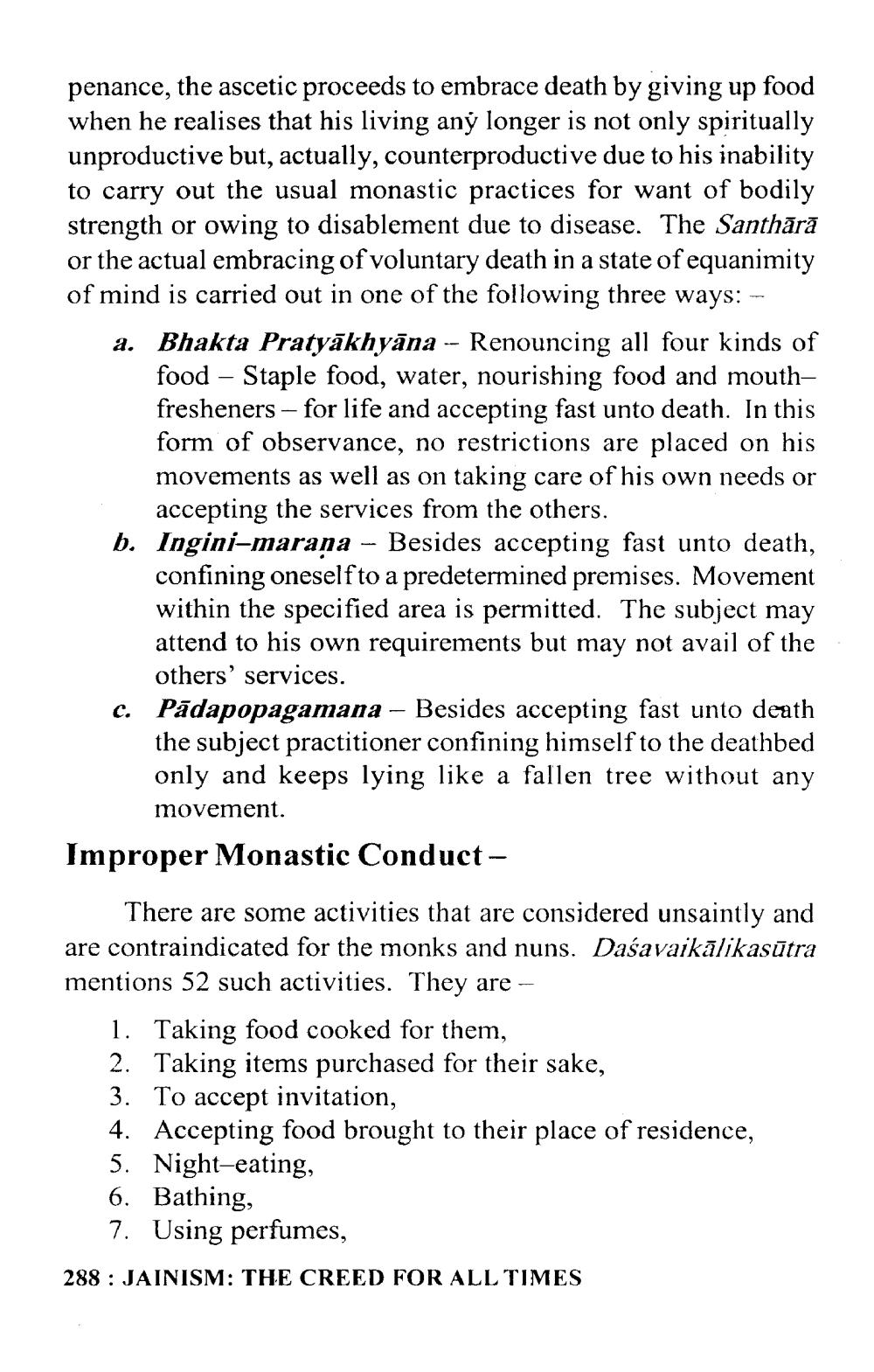________________
penance, the ascetic proceeds to embrace death by giving up food when he realises that his living any longer is not only spiritually unproductive but, actually, counterproductive due to his inability to carry out the usual monastic practices for want of bodily strength or owing to disablement due to disease. The Santhārā or the actual embracing of voluntary death in a state of equanimity of mind is carried out in one of the following three ways: - a. Bhakta Pratyākhyāna -- Renouncing all four kinds of
food - Staple food, water, nourishing food and mouth, fresheners – for life and accepting fast unto death. In this form of observance, no restrictions are placed on his movements as well as on taking care of his own needs or
accepting the services from the others. b. Ingini-marana - Besides accepting fast unto death,
confining oneself to a predetermined premises. Movement within the specified area is permitted. The subject may attend to his own requirements but may not avail of the others' services. Pādapopagamana - Besides accepting fast unto death the subject practitioner confining himself to the deathbed only and keeps lying like a fallen tree without any
movement. Improper Monastic Conduct -
There are some activities that are considered unsaintly and are contraindicated for the monks and nuns. Daśavaikālikasūtra mentions 52 such activities. They are -
1. Taking food cooked for them, 2. Taking items purchased for their sake, 3. To accept invitation, 4. Accepting food brought to their place of residence, 5. Night-eating, 6. Bathing, 7. Using perfumes,
288 : JAINISM: THE CREED FOR ALL TIMES




